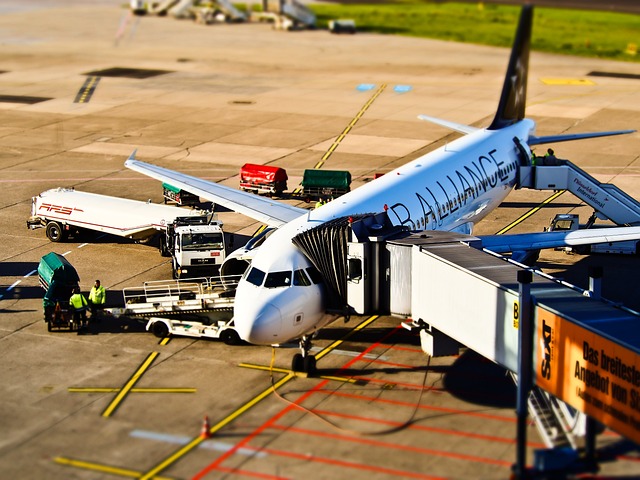Understanding Emerging Career Opportunities in Airport Operations for 2025
As airports evolve into more dynamic hubs of global movement, the demand for skilled personnel in operational roles is shifting. From advancements in baggage logistics to innovations in passenger flow systems, the landscape is broadening to include a range of career paths influenced by automation, sustainability strategies, and funding-driven upgrades. Understanding how airport operations are expected to change by 2025 can offer a perspective on how individuals and organizations approach training, planning, and long-term development within the travel industry.

What are the trending airport management careers for 2025?
Airport management careers are experiencing a significant transformation as we approach 2025. With the increasing complexity of airport operations, there’s a growing need for professionals who can navigate the intricate balance between technology, security, and customer experience. Emerging roles include sustainability managers, focused on implementing eco-friendly practices across airport operations, and digital experience directors, responsible for enhancing passenger interactions through technology.
Another burgeoning area is in smart airport design and operations. Professionals in this field will be tasked with integrating Internet of Things (IoT) devices, artificial intelligence, and data analytics to optimize airport efficiency. Additionally, cybersecurity specialists with a focus on aviation systems are becoming increasingly crucial as airports digitize more of their operations.
How are airline ground operations evolving?
Airline ground operations are undergoing a technological revolution. The integration of robotics and automation in baggage handling, aircraft servicing, and de-icing procedures is creating new roles for technicians and operators skilled in managing these advanced systems. Ground staff are now required to have a higher level of technical proficiency to work alongside automated systems.
Moreover, the push for quicker turnaround times and enhanced passenger experiences is driving the need for ground operations coordinators who can orchestrate seamless transitions between flights. These professionals must be adept at using sophisticated scheduling and resource management software while maintaining a keen eye on safety and efficiency.
What new aviation logistics jobs are emerging?
The field of aviation logistics is expanding rapidly, with new jobs emerging at the intersection of traditional logistics and cutting-edge technology. Drone logistics specialists are becoming increasingly important as airports explore the use of unmanned aerial vehicles for various tasks, from perimeter security to emergency response.
Supply chain analysts with expertise in aviation-specific needs are also in high demand. These professionals optimize the flow of aircraft parts, catering supplies, and other essential resources across global networks. Additionally, with the growing emphasis on sustainable aviation fuels and practices, logistics experts specializing in green supply chains are carving out a niche in the industry.
How is air traffic control training adapting to future needs?
Air traffic control training is evolving to meet the demands of increasingly complex airspace and technological advancements. Virtual and augmented reality simulations are becoming integral to training programs, allowing controllers to practice managing diverse scenarios in a risk-free environment. This shift is creating opportunities for VR/AR content developers and simulation specialists within the aviation training sector.
The integration of artificial intelligence in air traffic management systems is also shaping new training paradigms. Future air traffic controllers will need to be proficient in working alongside AI assistants, interpreting data from multiple sources, and making quick decisions based on advanced predictive models. This evolution is giving rise to roles such as AI integration specialists and human-machine interface experts within air traffic control operations.
What skills will be most valued in airport operations by 2025?
By 2025, the most valued skills in airport operations will likely combine technical proficiency with strong soft skills. Data analysis capabilities will be crucial across various roles, as airports increasingly rely on big data to optimize operations and enhance passenger experiences. Professionals who can interpret complex datasets and translate them into actionable strategies will be in high demand.
Adaptability and continuous learning will also be essential, given the rapid pace of technological change in the aviation industry. Airport operators will need to stay abreast of developments in areas such as biometrics, autonomous vehicles, and smart building technologies. Additionally, cross-cultural communication skills will become increasingly important as airports continue to serve as global connection points.
How are sustainability initiatives shaping airport career opportunities?
Sustainability initiatives are creating a wave of new career opportunities within airport operations. Environmental compliance officers are becoming staple roles at major airports, ensuring adherence to increasingly stringent regulations. Energy managers specialized in aviation are also in demand, tasked with implementing renewable energy solutions and improving overall energy efficiency across airport facilities.
Waste management experts with a focus on circular economy principles are emerging as key players in airport sustainability efforts. These professionals develop strategies to minimize waste, increase recycling, and find innovative ways to repurpose materials within the airport ecosystem. Furthermore, sustainable aviation fuel coordinators are becoming crucial in facilitating the transition to greener fuel alternatives, working closely with airlines, fuel suppliers, and airport operations teams.
As airports strive to reduce their carbon footprint and meet ambitious environmental targets, professionals who can navigate the complex interplay between operational efficiency, economic viability, and ecological responsibility will find themselves at the forefront of the industry’s evolution towards a more sustainable future.
In conclusion, the landscape of airport operations careers for 2025 is characterized by a blend of technological innovation, environmental consciousness, and operational excellence. As airports continue to evolve into complex ecosystems, the demand for skilled professionals who can adapt to new technologies, prioritize sustainability, and enhance the overall efficiency of air travel will only grow. Those looking to build a career in this dynamic field should focus on developing a diverse skill set that combines technical knowledge with strategic thinking and a global perspective.




